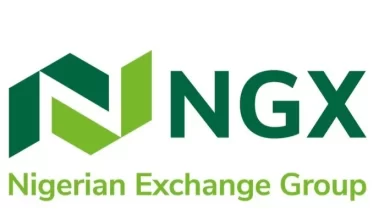N10/litre duty: Carbonated drinks manufacturers tackle customs, threaten shutdown

 Firms, under the aegis of the Nigerian Association of Small & Medium Enterprises, have accused the Nigerian Customs Service of extortion while implementing the recently introduced N10/litre excise duty on carbonated drinks, write Anozie Egole and Edidiong Ikpoto
Firms, under the aegis of the Nigerian Association of Small & Medium Enterprises, have accused the Nigerian Customs Service of extortion while implementing the recently introduced N10/litre excise duty on carbonated drinks, write Anozie Egole and Edidiong Ikpoto
The MSMEs, who are in the production of carbonated drinks, alleged that it would cost a single operator N4.8m every year to complete the registration process and also comply with other mandatory charges imposed by the Nigeria Customs Service.
While speaking exclusively the immediate past president of the Nigeria Association of Small Scale Industrialists, Segun Kuti-George, faulted the decision of the Federal Government to impose the N10/litre tax on carbonated drinks for manufacturers across board.
According to him, while the large-scale industries might be able to survive the consequences of the excise charge, virtually all MSMEs in the production of carbonated drinks would go out of business under the current excise regime and the demands being levelled by the Nigeria Customs Service.
Kuti-George said, “It is going to cost a small business a additional N4.8 million naira every year. That is an additional cost apart from the N10 and I will explain to you. The Customs people are now saying that they will attach a Customs officer to you. In fact, they have already attached themselves to every small business.
“You register with Customs with N2m. You will provide an office for the Customs guy that is attached to you. You will provide accommodation, room and sitting room with a toilet and a kitchen for the Customs official. That is N1.2 million per annum. You provide furniture and fitting for the rooms, estimated at about N1 million. Transport and feeding cost N1500 per day for 26 days in a month, that is N468,000 per annum.
“Then, you will sign a N220,000 bond with the Nigeria Customs, which costs nearly N5 million. If they sustain that thing for the next two months, you won’t find any micro business in production of sweetened items again.
“When my men were complaining to me, I was like, were they employing new people for you? Were they not working before? Are they not collecting salaries at their base where they are working? So, when we factor all these together, we are looking at N4.8 million in a year. My people don’t have the financial capacity.”
An MSME operator directly affected by the development, Peter Popoola, while speaking with our correspondent, said many micro-scale businesses were already shutting down due to the skyrocketing costs of the factors of production.
Popoola appealed to the Federal Government to intervene on behalf of MSMEs by way of initiating schemes that would help cushion the impact of the austere operating environment.
He said, “Our complaint is that you can’t give a flat rate for both small and multinational companies to pay. So, a small enterprise that is producing fruit flavored drinks with about five tanks or ten will pay the same as a multinational firm? You are telling them to pay the same amount as large enterprises.
“The economic climate presently does not favour small-scale businesses. Many of us are closing shop every day. So, what we need now is to help sustain those in our employment. Every month, we keep on retrenching workers, sending them to the already saturated labour market. So, this added tax now is burdensome.
The costs of all factors of production are very high; They are becoming unreachable for small scale. Diesel is about N800 naira now, and none of us can power our factories with diesel generators any longer.
“The prices of all other factors and materials are going up every day. So, we are going out of business systematically. At this point, we need the help of the Federal Government to give us money to sustain. But now, the profits of the businesses have been eroded by inflation and we are having just very small margins. It is on these small margins that you want to put another tax upon us. So, if they want to collect the money, let them collect the money from those big companies who have all the latitude to raise money and to sell at any comfortable price.”
He also noted that while the large-scale producers had increased the prices of their products to maintain profit margins, the lack of visibility of MSMEs had prevented them from taking such bold decisions to stay in business.
He further said that the smaller businesses “do not have the financial ability to take in more tax.”
On the terms and conditions imposed by the Nigerian Customs Service, he described them as outrageous, noting that charges were high.
He appealed to relevant authorities to wade into the matter as it would ultimately occasion the demise of MSMEs which were in the production of sweetened drinks.
“We do not have such money and that is why we are appealing to them that they should understand,” Popoola said.
The National Vice-Chairman of the Nigerian Association of Small & Medium Enterprises, Mr Solomon Aderoju, who also spoke said MSMEs were already contending with a barrage of difficulties such as energy costs, inflation rate, high borrowing rates, among others.




